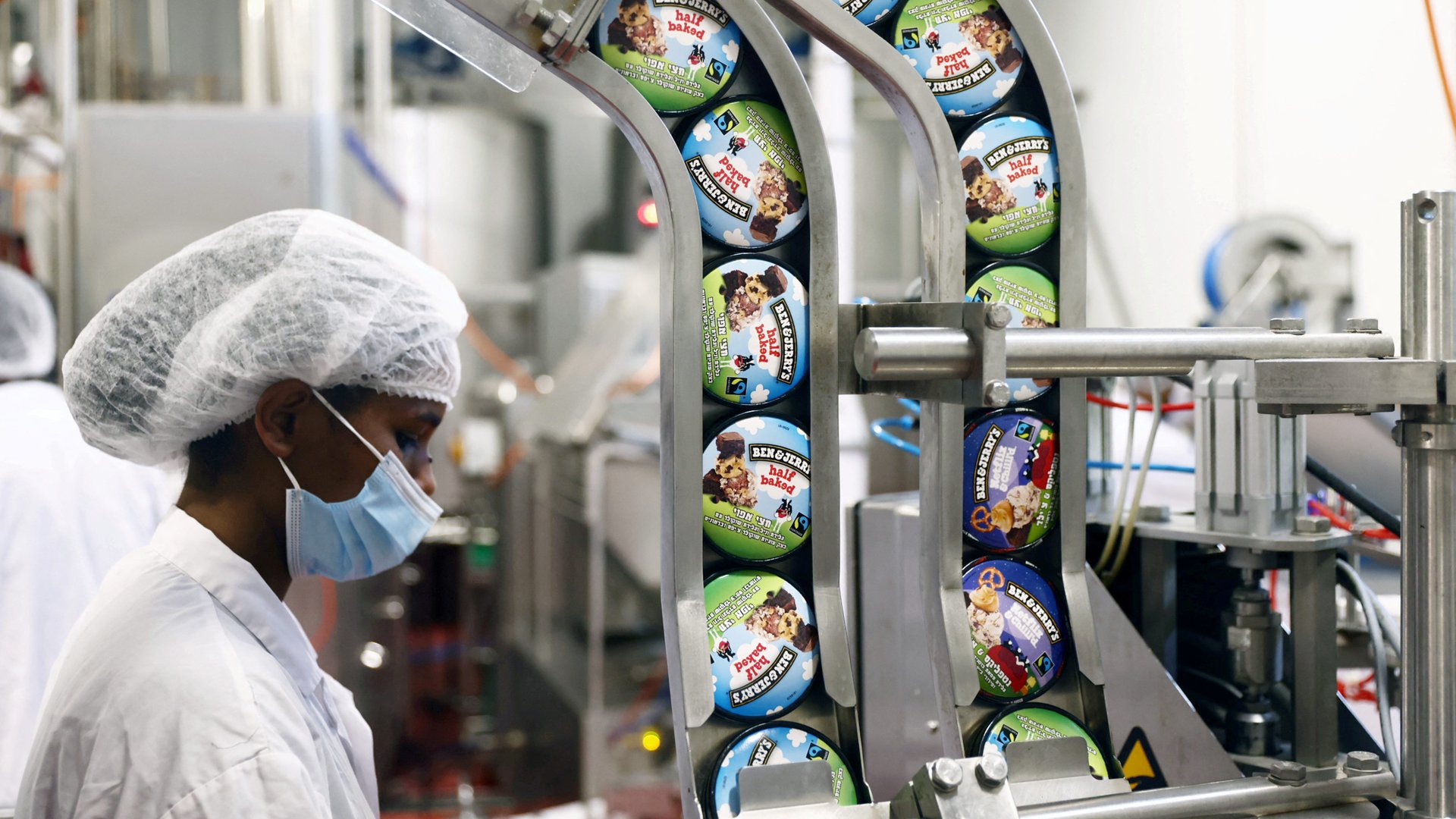Unilever isn’t displaying leadership by selling Ben & Jerry’s in Israel—just avoidance
When Ben & Jerry’s announced in July 2021 that it would stop selling ice cream in the Occupied Palestinian Territories, it immediately created a problem for its parent company.


When Ben & Jerry’s announced in July 2021 that it would stop selling ice cream in the Occupied Palestinian Territories, it immediately created a problem for its parent company.
Unilever, a huge corporation that owns a range of brands, some of which seek to have particularly “ethical” operations enshrined by the third-party B Corp certification, and many of which don’t, made an arrangement with Ben & Jerry’s when it bought the brand in 2000. The Vermont-based ice cream maker remained in charge of its own “social mission” and retained an independent board, while UK-based Unilever got decision-making powers over finance and operations.
But financial and operational decisions don’t happen in a vacuum. They happen in the same world as any social mission and, far from being independent of it, are often the levers that drive such missions forward—or stall them. When Ben & Jerry’s spoke out about Israel, Unilever came in for criticism and potential recriminations from the Israeli government, which framed the protest against its settlements as antisemitic. The Israeli distributor of Ben & Jerry’s sought damages from Unilever.
How Unilever is threading the needle in Israel
This week, Unilever announced a fix: Selling its Israeli Ben & Jerry’s business to Avi Zenger, the owner of American Quality Products Ltd, which has been distributing Ben & Jerry’s in Israel all along—meaning that Zenger could continue to sell the same ice cream, with the same packaging, using its Arabic and Hebrew names.
Ben & Jerry’s said on Twitter that it does “not agree” with the decision. But with the sale, both it and its parent company effectively wash their hands of the whole thing.
The might and money of big companies
Increasingly, businesses are being asked to account for their ethical choices at all sorts of levels: They’re being questioned by employees, pressured by investors, sung at by activists, and pushed by consumers to address their most egregious roles in climate change, exploitative supply chains, deforestation, and much more.
While many companies and activists argue that government legislation is the only viable way to solve big social and environmental problems, others have begun to suggest it’s only the might and money of companies that can really make a difference. Unilever, under the leadership of former CEO Paul Polman, is one company that has leaned in that direction. Buying smaller, mission-driven brands like Seventh Generation, which makes non-toxic cleaning products, and most recently tea maker T2, was a way to burnish its image as a multinational that cared and was willing to be changed from the inside.
The Israel issue is thorny, but that’s not a reason to sidestep leadership by simply walking away from the problem. Especially in a moment when the US Supreme Court is making particularly controversial decisions on things like climate change policy and abortion, companies have a chance and, arguably, a responsibility to clearly state what they believe, as 220 CEOs recently did in calling for US gun control.
Unilever declined to comment for this story beyond its statement on the sale, in which it said it “used the opportunity of the past year to listen to perspectives on this complex and sensitive matter and believes this is the best outcome for Ben & Jerry’s in Israel.”
Unilever’s workaround for ice cream sales in the occupied territories is a reminder about what company “social missions” should be—a real attempt to change the world for the better—and what they often turn into: mild-flavored, easily melted ephemera.